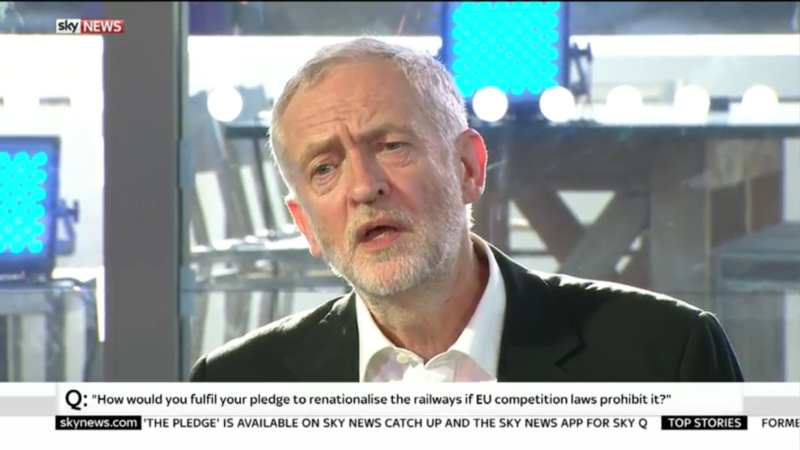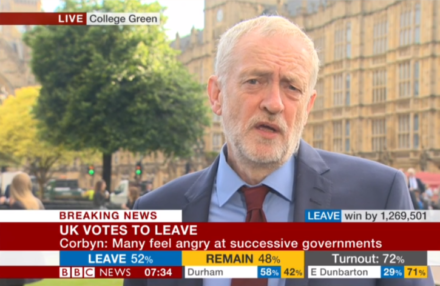

The Labour Party has been exposed as entirely out of touch with its electorate as working-class communities voted resoundingly to leave. The party now faces a process of serious self-reflection as to why former commodity broker, Nigel Farage, has been better able to capture and represent traditional Labour voters than any Labour Party MPs.
Jeremy Corbyn’s campaign was half-hearted and he appeared to be a reluctant Remainer at best. Many Labour voters did not know where the party stood and this is not merely a reflection of Corbyn’s position but, as Peter Mandelson pointed out this morning, the inability of his leadership to get their position heard through the media. The ability to manage the press is surely a necessary prerequisite for any party leader and repeatedly playing the victim in this regard has served to discredit his position further.
However, Brexit is a product of the last decade not the last two months. Project Fear was predicated on the threat of insecurity, yet Labour figures aligning themselves with this only served to expose a complete disconnect from the insecurity that characterises most Labour voters lives already. When Alistair Darling warned that he was as worried by the economic implications of leave, as he was at the time of the financial crisis, he symbolised the estrangement of the Labour Party with voters who have seen no tangible improvement in living standards since then.
The creeping economic growth that has occurred since 2008, has been concentrated firmly in the hands of the rich. According to the Institute for Fiscal Studies, income inequality has now fallen back to levels last seen years before the financial crisis. Since 2008 real wages have fallen around 8-10 per cent and falls in unemployment figures have done nothing to address this.
Working-class communities across the country have seen their industries decimated. Respectable British jobs from iron and steel, to retailers such as BHS, are rapidly being eroded. Where they are replaced, it is with precarious zero-hour, low-wage work, with companies such as Sports Direct. Insecurity is a fact of life for many, and vote leave actually promised to address this.
Farage is the only politician that has successfully managed to capture this mood and persuasively express Britons “bread and butter” concerns. These are: being able to get a GP, being able to get your child into a local school and being able to get on the housing ladder. If reducing the level of immigration by leaving the EU is the only argument that addresses this, then why are politicians surprised when people sign up?
The country is not full of “horrible racists”. Working class voters of all different nationalities have voted to leave and the promise of Brexit is a promise to address people’s very real concerns. The Labour Party, if it is to retain credibility, must recognise the hope, not hate behind the country’s decision.
What is needed in this moment is a coherent, persuasive and optimistic left message. Corbyn is right to suggest that we need to reinstall the migration impacts fund. But this is not enough. The Labour Party urgently needs to articulate a “fourth way” to tackle the real impact of inequality and globalization on voters lives.
The party also needs to remain united if it is to capitalise on the irredeemable divisions within the Tories. As the Conservative Party faces months of disarray and discredit, the Labour Party must put forward a united front and provide a positive message that focuses on investment and living standards. ‘Securing a better future’ must become the language of labour.
Emily Cousens is a phd student exploring structural vulnerability and precarity in post-industrial Britain




More from LabourList
‘Labour is being badly misled on housing’
Reeves bets on patience over populism
‘Energy efficiency changes must work for older private renters’